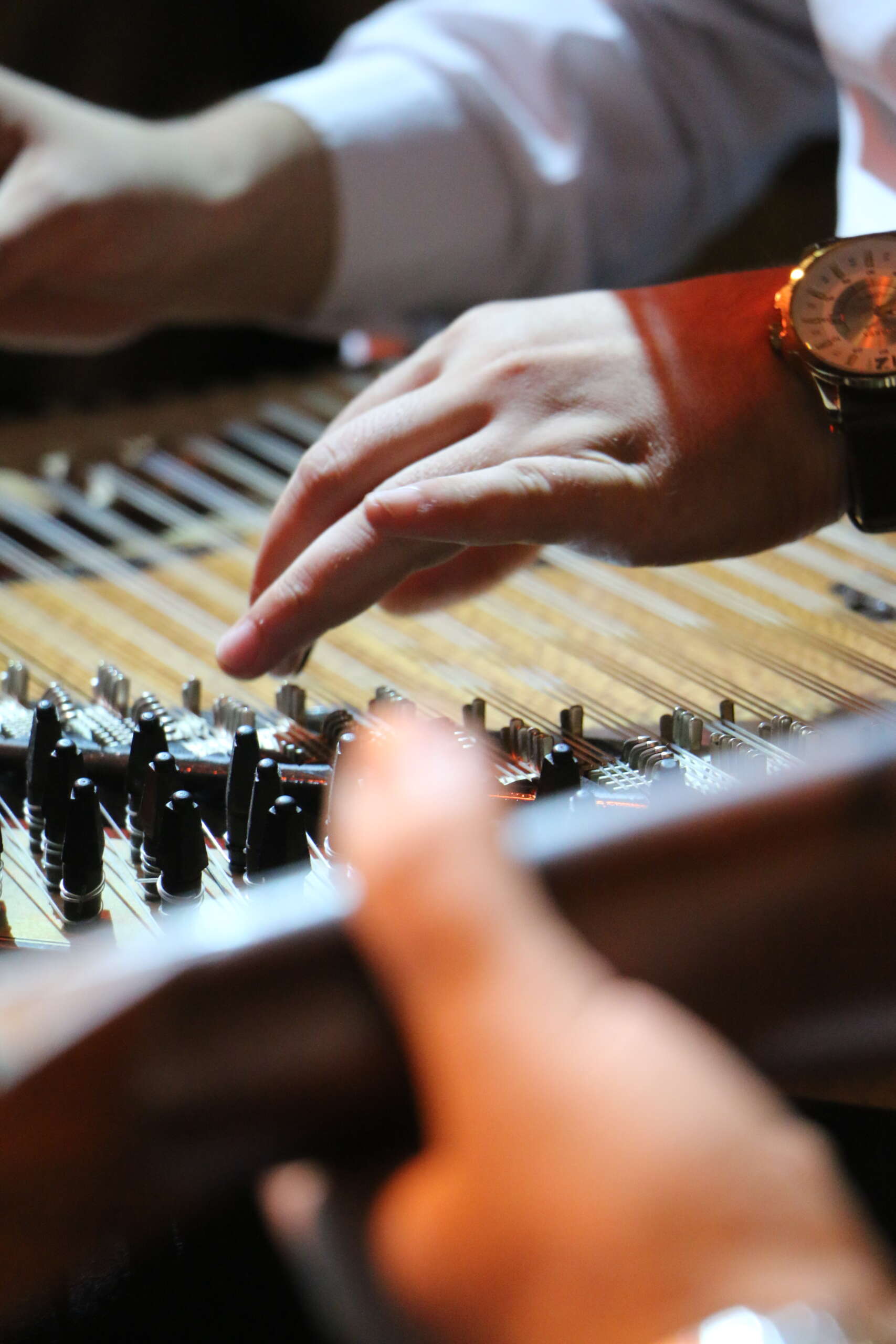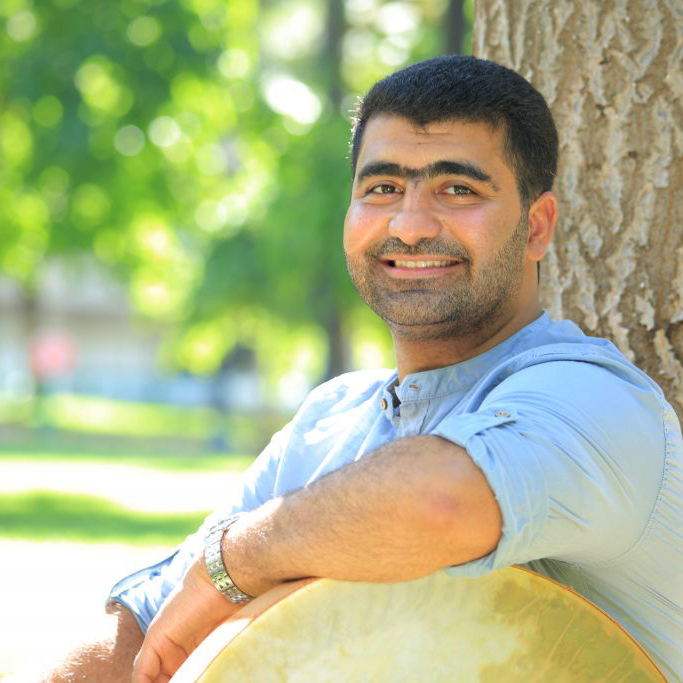Nawa Band is a band that is concerned with reviving and propagating muwashahat and Qudud of all forms, religious and non-religious, and documenting FUSOOL of inherited DHIKR in Syria after having compared the anciently written scripts with the orally passed down identified ones. Nawa Band performs this heritage worldwide in the most integral and sincere form, preserving its purity and spirituality to the highest level.
The band was formed in Aleppo in 2009 by the musician Ibrahim Muslimani. It gathered an elite group of musicians and performers spurred by passion to perform compositions and FUSOOL from the first half of the 20th century that were either forgotten or misrepresented through time. Nawa selects compositions according to both artistic and historical value, not merely according to ancient relevance, apart from touristic folklore.
The old Syrian composers, both acknowledged and unacknowledged, played a significant role in enriching the musical reminiscence. Our endeavour today is to document and bring their masterpieces back to life and to heartily put them in the hands of the noble audience and musicians. This comes out of a hope to contribute to the rising of a new musical renaissance with genuine and strong roots, a renaissance connecting the present with our glorious past and leading them both to a luminous future.
The name “Nawa” is in line with our musical vision. Nawa is a Maqam name and it is the fifth note in the musical scale. As in the linguistic meaning, (Nawa) stands for the (Core), the distance and destination and the voyage in between. Therefore, by Nawa, we mean a fine art in which the human travels, body and soul, from one status to another and from one level to a higher one, abandoning ghosts and valuing souls. “Every person will harvest what they intended” – this is what Nawa is about.
Nawa band participated in the following events:
- Concert during the activities of the “Syrian\German Music days” in Aleppo, 2010.
- Concert in “International Gaziantep Pistachio Festival”, 2010, Turkey.
- Concert in “Greeting from Aleppo to the Cities of Syria” at the Roman open theater in Jabla\Syria, 2010.
- Concert under the name of “Fusool from the inherited Dhikr of Aleppo” Aleppo, Syria, 2011.
- Concert in “The Francophonie Festival” in Aleppo, 2011.
- Concert in the festival of “Oriental Spaces” at the second international oriental music meeting, at the Syrian Opera House, 2011, Damascus.
- Released an album: (NAWA – Ancient Sufi Invocations & Forgotten Songs from Aleppo) in cooperation with “Lost Origin Productions” in Washington DC, 2014.
- The final ceremony of “The brotherhood” sport championship by the invitation of the Turkish Ministry of Youth and Sport in Gaziantep Stadium, 2016.
- The final concert in the symposium organized by al furkan Foundation entitled “The Art in Light of Objectives of Islamic Law (Maqased)”, 2016, Istanbul.
- Participation in the documentary (Wajd – songs of separation), by the Syrian-Canadian director Amar Chebib, 2018.
- The final ceremony of “Manuscripts Authentication Courses” organized by: The Institute of Arabic Manuscripts, ISAM, GAUN, and Diyanet Vakfı, Gaziantep, 2018.


Born in Aleppo 1992, Ibrahim was raised in a family that had a great interest in Chanting. His early steps started in 2003 when he began to learn the essentials of percussion and rhythms from his older brother, Mohamad Muslimani. Meanwhile, he joined some chanting groups as a professional Daf player. In 2006, Ibrahim started collecting the musical heritage, both religious and non-religious. He focused on the orally passed down, almost lost musical heritage and the rare Muwashahat, Qudud, Maqamat, rhythms and musical manuscripts and records.
Ibrahim had a great chance to learn from three of the students of the great Syrian composer Omar Batesh (1885-1950). He learned from the master Hassan Bassal some of the rarest Muwashahat, Qudud, and the Aleppine Al-Samah forms, the embodiment of oriental rhythms using arms and feet, along with the forgotten lyrics and Maqamat series “Hijaz Natık”, which were only known by Hassan Bassal. Ibrahim also learned other Al-Samah forms from the master Fakher Nayyal. He did also take from the master Zuheir Meniny the essentials of the almost lost Rashidi chanting method in Syria, beside several Muwashahat and religious chants. Moreover, Ibrahim learned the essentials of Dhikr chanting and old rhythms form the master Mohamad Fateh Abu Zaid. He got a certificate in the essentials of classical Turkish music from the Directorate of Culture in Gaziantep,Turkey. Ibrahim is still studying the essentials of musical theories, rhythms and maqamat of the Ottoman Music, Oud playing and ethos of music with the master Mohammad Saif Addin Zein Al-Abedin.

